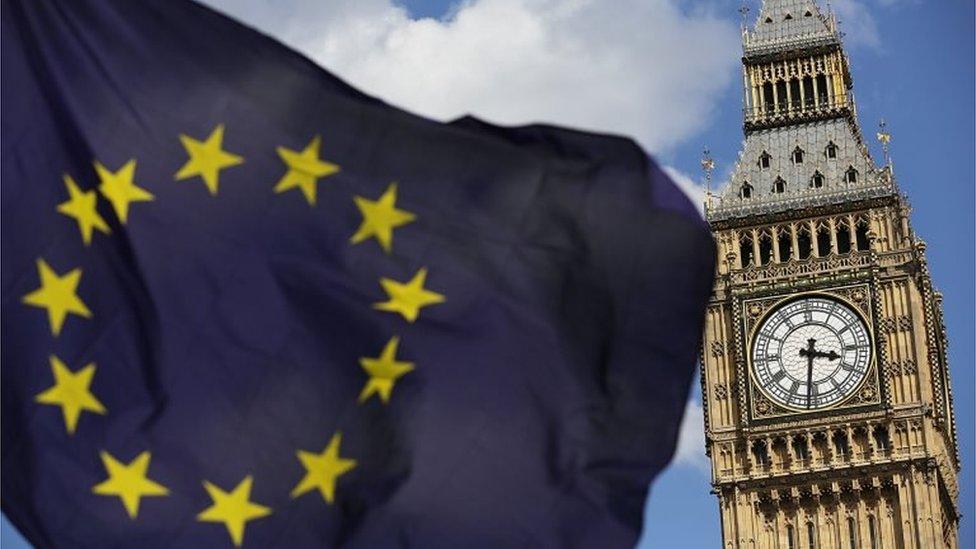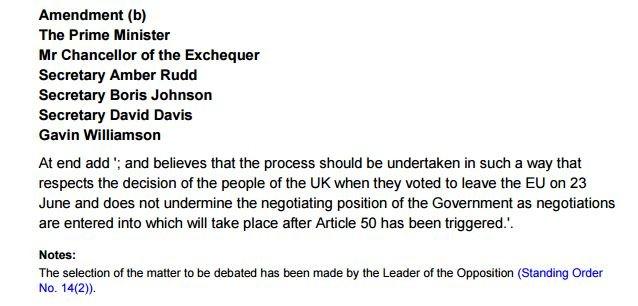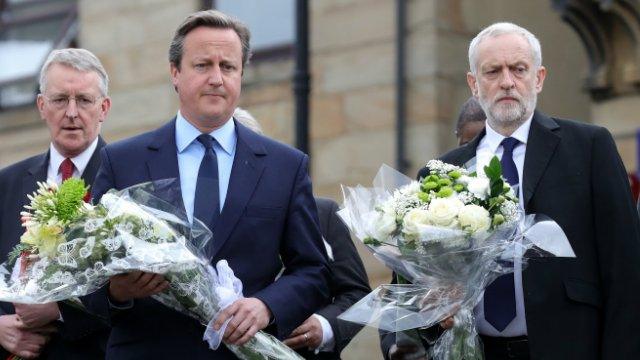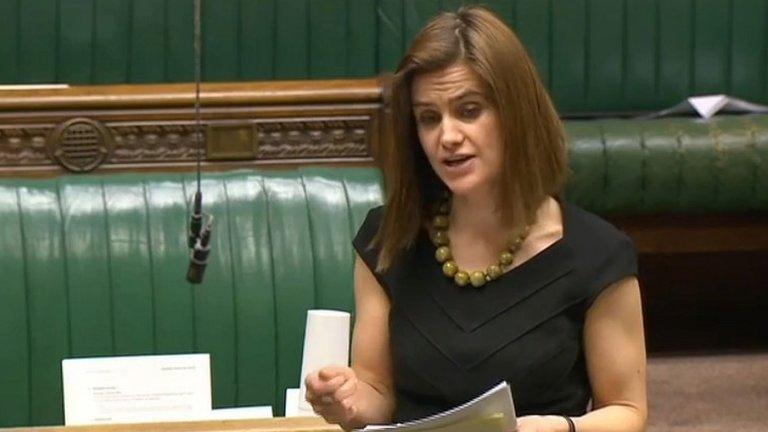Brexit in Parliament: how future battles could play out
- Published
- comments

The Commons debate on Brexit - or at least on the need for proper parliamentary scrutiny of Brexit - is just an appetiser for conflicts to come.
One way or another, most politicians in the Chamber will spend the rest of their working lives grappling with the implications of the decision taken in June. And Parliament will certainly offer many channels for doing so.
One of the most striking aspects of the debate is the sudden and surprising alignment between Tory Remainers (ex-Remainers?) and non-Corbynista Labour MPs.
Both, at least for now, pay ritual obeisance to the will of the people as expressed in the referendum, but both are now arguing hard for some arrangement that keeps Britain within the EU single market, as opposed to an arrangement that allows access.
And there seems to be genuine warmth between Labour heavyweights now lurking on the Opposition backbenches: the Pat McFaddens, the Angela Eagles, the Chris Bryants, and Tory ex-ministers like Dominic Grieve, Claire Perry, Anna Soubry and Alistair Burt.

It is a potentially formidable alignment; insiders tell me the government seemed to fear losing the vote on Labour's motion today - which is why it offered an amendment aimed at defusing the issue.
And there could be more occasions when the government finds its majority in jeopardy. An interesting indicator will come in a couple of weeks, when the membership of the new Brexit select committee emerges. It will have 10 Conservative members, five Labour (plus a Labour Chair), two SNP MPs, and one each from the Lib Dems, the DUP, the SDLP and Plaid Cymru. (UKIP's sole MP, Douglas Carswell issued a rather plaintive tweet: "Any space for Ukip? The only party in Westminster denied a place on any select committee.")
The former shadow foreign secretary Hilary Benn looks the runaway front-runner to chair the committee at the moment - we'll know for sure next week.
But far more interesting will be the choice that is then made by the Conservative and Labour MPs - will a Conservative Parliamentary Party that was overwhelmingly pro-Remain now send a pro-Remain contingent to that committee? Will any of the small band of pro-Leave Labour MPs win a seat? Those results will tell us much about the balance of opinion among Tory and Labour MPs - and in particular about whether there is an appetite to organise to remain in the single market.
And an early test of the Brexit Committee, itself, will be its decision on a programme of activity.
Setting the agenda
Members will have to look at an all-encompassing issue, and then decide which are the aspects they should look at first. If they get that decision right, David Davis's Brexit department could soon find itself facing some uncomfortable questions.
And, of course, they will not be the only select committee involved; already the Education Committee, to take one example, is zeroing in on the implications of new immigration restrictions on foreign students, for higher education.
A little further down the line, there will be trade treaties. And here it is worth noting that the 2010 Constitutional Reform and Governance Act , external(CRAG for short) enacted some little-noticed provisions which give MPs the power to block treaties.
It gives the Commons 21 days to pass a resolution that the treaty should not be ratified, and then ministers would have to deliver a statement on why it should be. If MPs are still not happy, they have a further 21 days to vote again against ratification, requiring another statement; and the process can repeat itself indefinitely.
It is a formalisation of the 1930s Ponsonby Rule, external - and it provides a lever for MPs who don't like some new trade treaty to make their feelings clear.
To be sure, it requires a Commons majority, but there may well be a majority on issues relating to the single market. The new Chief Whip, Gavin Williamson, has his work cut out.
The interesting question is whether his troubles will be orchestrated by his wily new opposite number, Nick Brown, or by some unofficial, but well organised cross party cabal.
- Published17 June 2016

- Published17 June 2016
